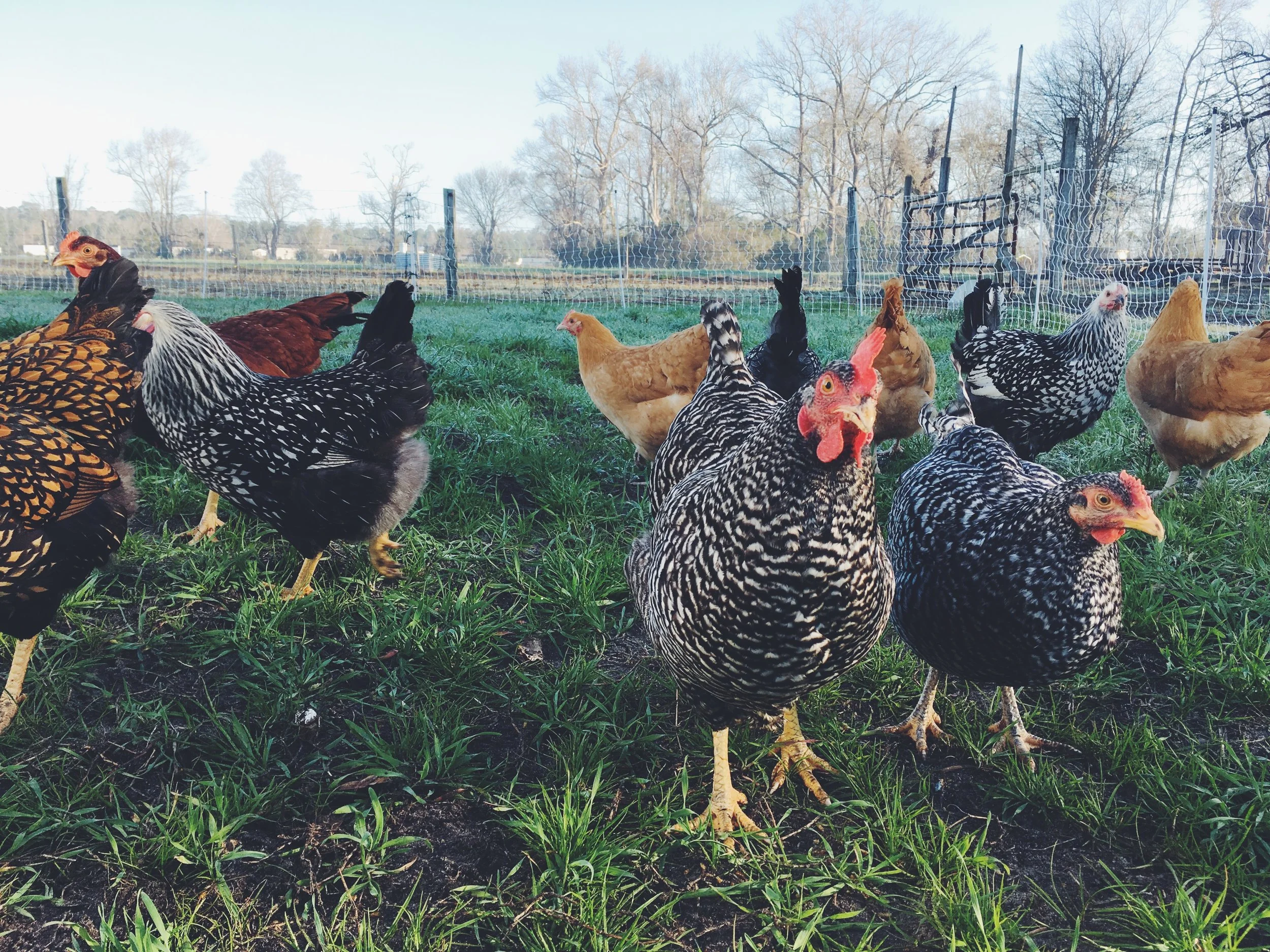What is pasture raised poultry?!
I used to ask myself the same question.
Rather, I didn't really know what any of the labels meant, I just figured I'd get the cheapest meat I could find...it couldn't be that different, right?!
I was WRONG!
Before deciding to start a farm, we began researching the health benefits of pasture raised poultry and were BLOWN AWAY by what we found!
Not only is the meat that pasture raised birds produce healthier, which I'll dig deeper into in a bit, but the meat is full of rich flavor AND the birds themselves get to live the way they were meant to.
More specifically, pasture raised poultry are raised outside where they have access to fresh grass & bugs. They get to enjoy sunshine and express their "chickenness."
We LOVE knowing our animals are raised with the utmost care out in nature the way they were created to be raised - and this has a HUGE impact on the quality of their meat.
Some health benefits of pasture raised poultry include:
the meat contains 50% more vitamin A, which supports your immune system, vision, and more, than conventionally raised chicken
the eggs contain 3-6 times more vitamin D, which helps build strong bones
the meat has significantly less fat overall, around 30% less saturated fat!
the meat and eggs have significantly higher levels of omega 3 fatty acids, which serve as a source of energy for your body as building blocks for cell membranes
much less chance of food borne illness since the birds are much cleaner and healthier
they don't contain antibiotic resistant bacteria since the birds aren't medicated
Pasture raised poultry is also much better for the land, because most pasture raised poultry are rotated across pasture to sustainably spread their manure and nourish the grass.
We love how nature all works together - one huge sustainable circle of life :)
Right now, we lease land from a farm that raises cows and pigs. Once their cows have eaten down a paddock of pasture, they are rotated to the next one and our chickens come into the pasture following the cows.
The cows essentially "mow" the grass to an ideal length for the chickens to be able to forage. Otherwise, if grass is too tall, the chickens won't forage as well. Then the chickens spread the cow manure around, drop their own manure, and leave the pasture a lot more nourished than before.
Then the pasture rests and once the cows rotate back onto that pasture, they are eating more lush grass than before - healthier cows, chickens, and land.
It's amazing how sustainable pasture raised animals are!
And once we move to our new 20 acre property, we plan to keep up with the same method with our own cows.
We've also realized that we can't be sure exactly what we're getting when we buy food from a grocery store. We want to be able to have a conversation with the farmer and be confident in their practices.
Some commons practices include a chicken being dipped in a chlorine solution during processing to kill bacteria and some are even "plumped" (injected) with a saline solution. This is meant to add flavor and juiciness, but can be a big part of the total weight you're paying for and it adds so much unneeded sodium! No thank you!
Because our birds are healthy and our processing area is clean, we find the chlorine dip unnecessary. And we may be biased, but our chicken has such rich flavor on it's own, it doesn't need an injected solution to taste good.
So that's the big deal about pasture raised poultry - it’s more nourishing & flavorful for us and more sustainable for the animals & the land.
We want to be a resource to you! Please ask us any questions you may have. We promise to be as transparent as possible with our farming practices.
Did you learn something new?! Tell us in the comments below!
If you'd like to do more of your own research, check out these resources, which is where we pulled our facts from:

